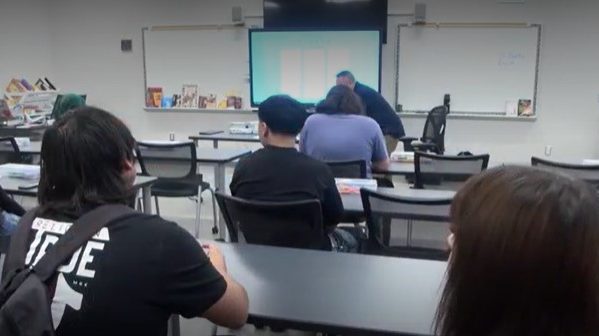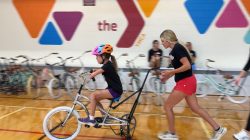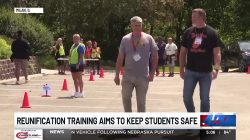Combating the Summer Slide: Strategies to Keep Students Learning
As the summer season approaches, many parents and educators are concerned about the impact of extended breaks on students’ academic progress. Research has shown that during the summer break, students can lose up to two months of reading and math skills. This phenomenon is commonly referred to as the “summer slide.” It’s a critical issue that affects not only academic performance but also long-term educational outcomes.
The National Summer Learning Association reports that 85% of students lose some academic skills during the summer break. This loss can be especially pronounced for students from lower-income families, who may have less access to enrichment activities. However, there are effective strategies to help mitigate this learning loss and keep students on track for success.
At the Tutoring Center in Fresno, owner Janet Williams is working to address this challenge. She emphasizes that even small efforts can make a significant difference. “Our programs, as little as 2 hours a week, are sufficient enough to prevent a lot of that drain, a lot of that summer slide, and reduce the amount of time needed to review at the beginning of the next school year,” Williams said. Her approach focuses on keeping K-12 students mentally active and prepared for the upcoming school year.
The Tutoring Center offers a variety of programs designed to support student learning. From structured tutoring sessions to skill-building workshops, these initiatives aim to reinforce key academic concepts and encourage continuous learning. According to Williams, the results speak for themselves. “90% of our students achieve a one-year gain in their academic skills in as little as six months,” she explained. This impressive statistic highlights the effectiveness of targeted, consistent academic support.
Beyond formal programs, Williams also encourages parents to incorporate learning into everyday activities. “Engage with your kids, play games, involve them in cooking, involve them in shopping. All of that is math,” she said. These simple, practical strategies can help maintain and even improve academic skills without requiring a large investment of time or resources.
Williams understands the challenges that parents face when trying to balance work, family life, and education. She shares her own experience as a parent, emphasizing the importance of making academics a priority. “I also was very intentional with my kids when they were growing up, and we made academics a priority even when they didn’t want to, and it paid off in the long run,” she said. Her personal journey underscores the value of consistent effort and commitment to a child’s education.
Parents looking for ways to support their children’s learning during the summer can take advantage of various resources and activities. Reading together, practicing math problems, and exploring new hobbies are all excellent ways to keep students engaged. Additionally, community programs, libraries, and local schools often offer summer learning opportunities that can provide valuable support.
By staying proactive and creative, parents can help their children avoid the summer slide and enter the next school year with confidence and readiness. Whether through structured programs or everyday interactions, the key is to maintain a focus on learning and growth throughout the summer months.
In conclusion, the summer slide is a real and significant challenge, but it is not insurmountable. With the right strategies, resources, and support, students can continue to develop their skills and remain on track for academic success. As Williams demonstrates, even small efforts can lead to meaningful improvements and long-term benefits for students.







